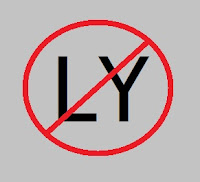Well, here we are yet again. Another year gone by. Time to look back and see how well we stuck to our resolutions.
If you bother to stop in here and read these little rants, I’m guessing you’ve thought about being a writer. Not a weekend dabbler, not an incorruptible artiste, but someone who wants to make some sales and write for a living. And the only way to do that is to write. Not to plan, not to research, but to sit down at the keyboard and start typing out my story one word at a time. There’s no other way to get something done and no other way to get something sold. If I’m not writing… it’s just not going to happen.
So, all that being said… what did you get done this year?
Me? I started 2013 already waist-deep in Ex-Purgatory, which was due at the end of April. Of course, before I could finish that my editor at Broadway had some notes for me on Ex-Communication. Really good notes, for the record. There were only one or two things we argued over, and even on those we found a solid middle ground that made us both happy.
But before I did those, I had to go over the copyeditor’s notes on Ex-Patriots. They were doing a quick run through it before the re-release in April. So I spent a day or three on that.
At least, I would’ve, but first I had to go over the new layout proof for Ex-Heroes. It was coming out in February, after all. So that got priority. Then Ex-Patriots, then Ex-Communicationnotes, and then back to working on Ex-Purgatory.
Of course, by that point, I now had copyedits on Ex-Communication. And a layout proof for Ex-Patriots. And even some very last minute input on the Ex-Heroescover. And after all that, I could get back to Ex-Purgatory.
Until… well, I’m sure you can see the pattern at this point.
Despite all this, I still managed to get Ex-Purgatory done on time. It went long, and then I cut it way back, and then my editor suggested a few other cuts and some other additions. We did a bunch of work on it, and in the end it went from a book I was kind of worried about to one that I’m almost proud of. And it’ll be in stores in less than three weeks.
That was the first eight months of 2013.
Somewhere in there, between rewrites and layouts for Ex-Communication, I started a new book. Something kind of urban-fantasy-ish, but a lot darker. I was about 15,000 words into it when I went to Comic Con. Alas, after talking with my agent and my editor, it’s going on the back burner for a little bit. Hopefully it won’t end up being my new Dead Moon…
There was also another idea I worked with for a while. I pitched this one to my editor as “Neil Gaiman’s Neverwherecrossed with Cannonball Run.” Which, if nothing else, caught his attention. For the double-handful of you who were at Booktopia this summer, it’s the story I mentioned about the Model T Ford. I was about 19,000 words in when new deals were finalized with Broadway. This one’s still going to happen, but it’s been pushed a bit further down the line.
I wrote a handful of short stories, too. “Flesh Trade,” alas, didn’t make it into Clive Barker’s upcoming Midian Unbound anthology (I only cried a little bit at that). But the guys at Kaiju Unbound really liked “Banner of the Bent Cross” and the folks at Evil Girlfriend Media said yes to another story (which I can’t talk about quite yet). I also polished up an old tale, “Contraption,” for an upcoming collection of short stories from Permuted Press.
And since then I’ve been working on my current book, The Albuquerque Door. Well, there’s been some concern about the title, but I’m hanging onto it as long as possible. I’m about 25,000 words into it so far.
Plus there were also thirty-eight posts here (to be honest, one of my worst years since I started the ranty blog). And another thirty posts on other pages I keep. Plus a dozen or so promo articles for different books (including a handful of titles from Broadway’s new Doctor Who line).
Thing is… I feel like I slacked off a lot this year. There were a few times when I was waiting to hear back on deals or between drafts or just feeling burned out by that glut of work at the start of the year… and I took a day off. In and of itself, there’s nothing wrong with it, and I didn’t miss any deadlines, but the truth is I took off a couple of days I really had no business taking off. Days I should’ve been writing. I look back at this past year and I think that I really should be further along in that urban fantasy story. The Model T story should have a lot more to it, too. I look at this list and think I didn’t write enough this year.
Thing is… I feel like I slacked off a lot this year. There were a few times when I was waiting to hear back on deals or between drafts or just feeling burned out by that glut of work at the start of the year… and I took a day off. In and of itself, there’s nothing wrong with it, and I didn’t miss any deadlines, but the truth is I took off a couple of days I really had no business taking off. Days I should’ve been writing. I look back at this past year and I think that I really should be further along in that urban fantasy story. The Model T story should have a lot more to it, too. I look at this list and think I didn’t write enough this year.
How about you? How much did you write…?
Next time—next year, really—I’d like to take a few minutes to talk about what I talk about here. A mission statement, if you will.
Until then… Happy New Year.
And go write.







